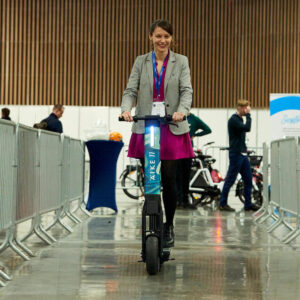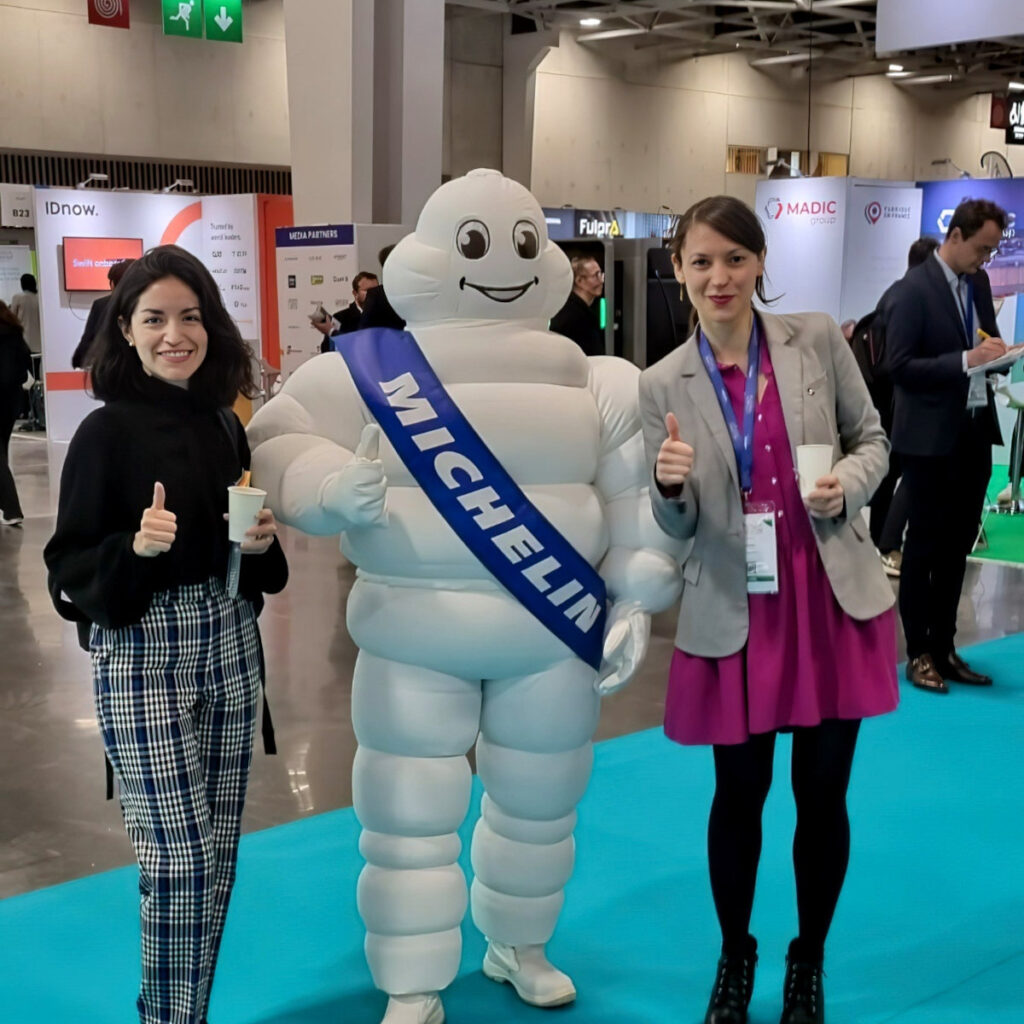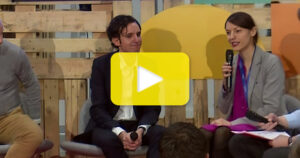Trufi Association was represented by Pauline Baudens and Eva Asturizaga at the AUTONOMY Mobility World Expo in Paris in March of 2023. The event brought together experts and stakeholders in the mobility sector to discuss challenges and opportunities for sustainable and inclusive mobility.
Our delegation brought a perspective to the conference on sustainable and inclusive mobility for the global South. They highlighted the need for inclusivity and the challenges faced by vulnerable populations such as women, elders, children, and people with limited mobility.
Panel Discussions with Baudens and Asturizaga
Baudens and Asturizaga participated in two panel discussions. Find the videos and details at the links below. (Baudens also delivered a keynote at the event on “Gender Specificity in Informal Transport,” which was not filmed.)
Global South Needs a Stronger Presence in Sustainable Mobility Discussions
“Reaching sustainable and inclusive mobility is a big challenge,” said Baudens, “due to the complexity of transport systems, and of relationships between organizations – authorities, companies, NGOs.”
Asturizaga emphasized the importance of collaboration. “All stakeholders need to work together to truly achieve common goals such as Sustainable Development Goals by 2030.” City officials need to understand the needs and demographics of their cities and work with organizations to find and implement the necessary solutions.
“It was great and unexpected to be able to connect to city officials from South America who are taking important steps to make transportation in their cities more sustainable,” Asturizaga said. “The voices from developing nations were limited, which made their participation all the more important.”
“Most people didn’t consider that the solutions and discussions taking place at the conference were largely not applicable in low- and middle-income countries,” she said. “More interesting was the number of times I had to define ‘informal transport'” Many attendees seemed unaware of the important role informal transport plays in global South transportation networks, she said. “Just having these conversations and bringing these topics to light – whether a one on one discussion at a booth or as part of a panel – can and will, hopefully, have a wider impact.”
One of These Schemes Is Not Like the Others
Many participants approached the expo as a trade show, to showcase private sector solutions – in contrast to Trufi’s open-source and open data approach to improving mobility and enabling innovation.
“There were several transport solutions such as e-buses, scooters, bikes, a self-driving bus and more technical solutions including micro-location,” said Asturizaga. “The academic portion was a little more limited.”


How Did the Other AUTONOMY Participants Respond to Trufi?
“They kind of love it, I think,” said Baudens. But some struggled with the idea of open-source non-proprietary software solutions. “It seems that they have a hard time to understand what it really concretely means, that anyone can take the Trufi solutions and deploy them somewhere else.”
The questions about Trufi’s “business model” according to Azurizaga, highlighted “the real need to improve mobility in cities, which is for the benefit of the users, and not to sell a product or monetize the solution.”
Gender Specificities in Informal Transport
Baudens delivered a keynote on “Gender Specificities in Informal Transport,” the topic of her PhD research. Her presentation focused on the limitations faced by women regarding their mobility, and how women have different concerns such as safety needs.
“After reading a lot on the topic of gender mobilities, to me it all sounded very obvious and repetitive,” she said. “But apparently people did learn from my presentation, that there are limitations women face with mobility and immobility, and that women have different concerns and patterns.”
(We will provide a video of Baudens’ presentation in the future.)
Inclusivity and Innovation in Sustainable Mobility: Trufi’s Insights
The Trufi perspective brings a valuable contribution to the discussions of sustainable and inclusive mobility, as highlighted by the participation of Baudens and Asturizaga at the AUTONOMY Mobility World Expo. Their emphasis on the need for inclusivity, collaboration, and innovation, as well as their recognition of the challenges faced by vulnerable populations in the global South, underscores the importance of considering all users when designing transport solutions.
The Trufi approach, based on open-source and open data solutions, challenges the profit-driven model of many private sector solutions and prioritizes the needs of users. The conference provided an opportunity for Trufi to showcase their unique approach and raise awareness about the need for more diverse and inclusive perspectives in sustainable mobility discussions.




Pingback: VIDEO: Unveiling Gender-Specific Mobility Challenges in Informal Transport: Insights from Pauline Baudens - Trufi Association
Pingback: The Year in Trufi: 2023 - Trufi Association